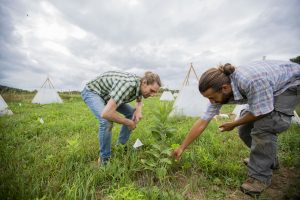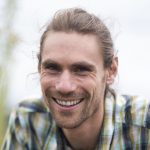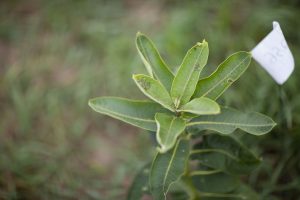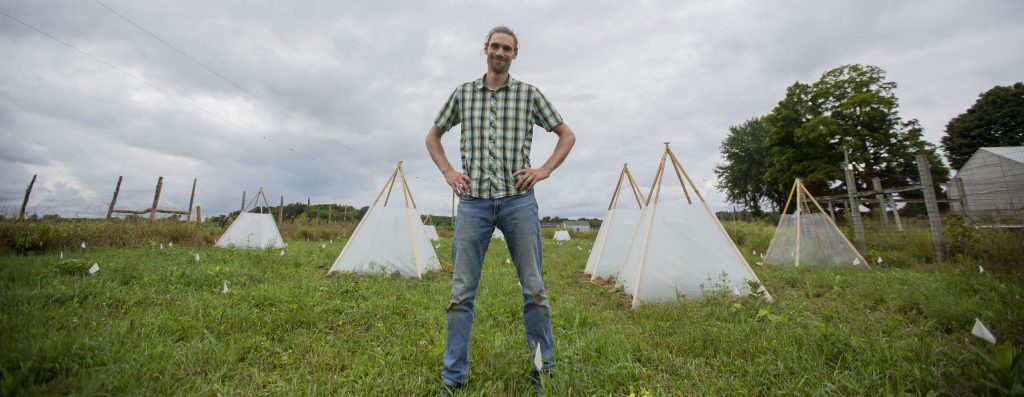Will Wetzel, an assistant professor in MSU’s Department of Entomology, has been coming to KBS to conduct field research for the past two years.
He and his team of students and postdoctoral researchers are interested in understanding connections between plant diversity and insect communities through processes like predator-prey interactions, insects’ egg-laying decisions, and movement of insects across landscapes.
“As a whole in the lab we’re interested in how variability in the environment and species influences how ecology works,” Wetzel said.
One of his lab’s projects uses an emerging model system in molecular ecology with 76 different tomato genotypes, created by breeding cultivated tomatoes with wild tomatoes. The genotypes differ from each other in odor or defense mechanisms against pest insects. Understanding the diversity of how plants defend themselves could inform farmers’ choices and reduce the need for pesticide use.
“Wild genotypes are different from each other in a million unknown ways, but with our genotypes, they’re different in a limited set of ways, so we can plant them out in the field in polycultures where we know exactly what the source of the diversity is.” Wetzel said. “We’re trying to uncover the mechanisms behind why plant diversity is so important for insect communities.”
KBS’s reputation for high quality ecological field research was one of the factors that drew Wetzel to MSU.
“KBS is amazing not just because of its great and beautiful field sites, but because it has unparalleled lab facilities for a field station,” said Wetzel. “We can do a field experiment outside in an agricultural field or in a natural habitat, and then we can process our samples inside state-of-the-art lab facilities within a 200-foot walk.”
Wetzel’s lab has plots at the KBS Plant Ecology lab and the Kellogg Farm. With up to ten researchers pitching in at any given time, from undergraduates to postdocs, the science is a true team effort.
“It’s just been a dream come true,” Wetzel said. “It’s been so fun just to walk around from field site to field site and see all the progress my students and postdocs are making, and see their great ideas and creative solutions to difficult field problems. It’s been fun to help them grow as scientists out at KBS.”
Like Wetzel, visiting researchers from MSU and institutions all over the world come to KBS for field research. To learn more about conducting research at KBS, visit our website.





A legacy of conservation; a commitment to sustainability.
3700 E. Gull Lake Drive
Hickory Corners, MI 49060
(269) 671-5117
info@kbs.msu.edu